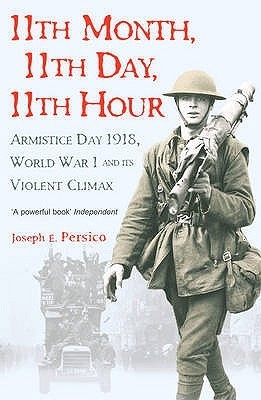
The Great War (World War I) ended at the 11th hour on the 11th day of the 11th month of 1918. At 5 a.m., Germany, bereft of manpower and supplies and faced with imminent invasion, signed an armistice agreement with the Allies in a railroad car outside Compiégne, France. WWI left 9 million soldiers dead and 21 million wounded. At least 5 million civilians died from disease, starvation or exposure.
Berlin calls for talks
On October 3, Germany’s Emperor, Kaiser Wilhelm II, appoints as chancellor Prince Max of Baden who has long advocated a negotiated peace with Britain, France and the United States. The very next day the new chancellor telegraphs U.S. President Woodrow Wilson to call for talks. The Allies demand Germany’s unconditional surrender and the Kaiser’s abdication. Pressure builds on Berlin. German forces, their spring offensive long exhausted, are beating a disorderly retreat. On November 3, German ally Austria-Hungary capitulates and signs an armistice.
German negotiators enter France
Tensions mount in Germany as naval forces mutiny at Kiel and a general strike is called on November 5. French officers, meanwhile, receive the order to allow safe passage of top German diplomats into Allied territory. On November 7, at 8.30 p.m., a ceasefire is sounded at La Capelle in northern France, near the Belgium border. It is the first in more than 50 months of war and allows the German delegation, led by Minister of State Matthias Erzberger, to cross into an Allied zone. The diplomats take a train to a secluded forest clearing near Compiegne to meet Allied forces commander General Ferdinand Foch.
Armistice signed
Night has fallen on the forest clearing when the messenger returns, on November 10, with the commander’s permission. Negotiations resume. For three more hours the Germans argue, clause by clause. Eventually there is a final version: by 5.20 a.m. on November 11, the armistice ending a war started four years earlier is signed in a train carriage in the woods. The news reaches the troops quickly, and is received with disbelief. Some commanders decide to continue fighting to the bitter end; others will not risk any further lives. On the stroke of 11 a.m. the ceasefire agreed just hours earlier is sounded by bugles and clarions along the hundreds of kilometres of front line that stretch across Europe. Soldiers gradually emerge from the trenches, stunned.
War is over
Celebrations erupt in the capitals of the Allied victors. Civilians pour into the streets, thronging the Place de la Concorde in Paris, Piccadilly Circus in London, New York’s Fifth Avenue, the Piazza Venezia in Rome. Church bells ring out at full peal and people dance in the streets.
Credit : The Hindu
Picture Credit : Google




